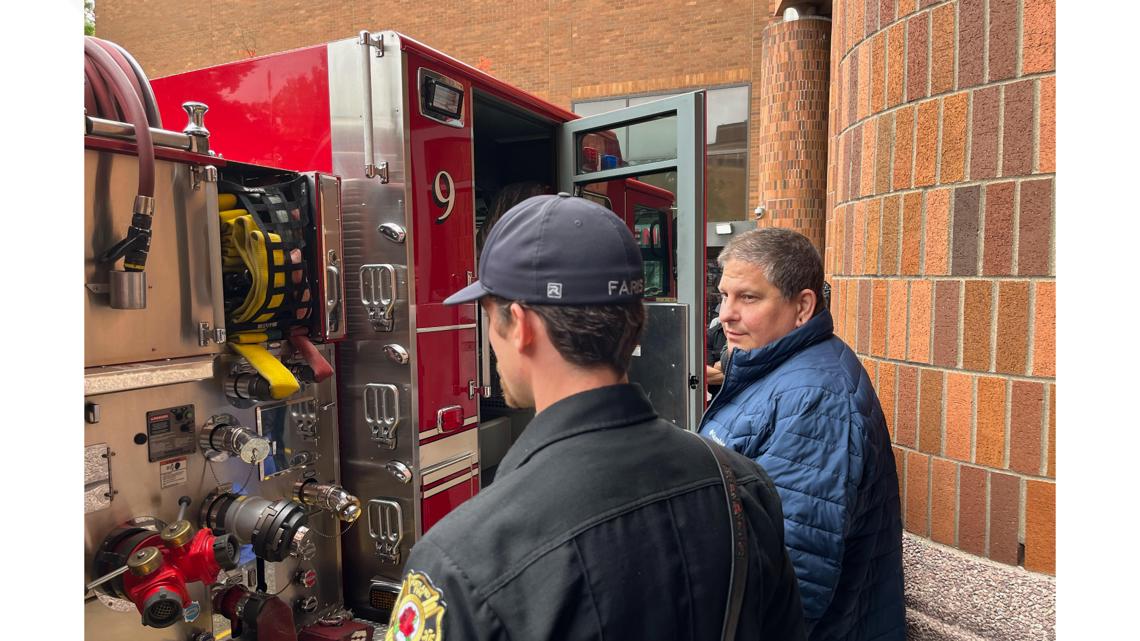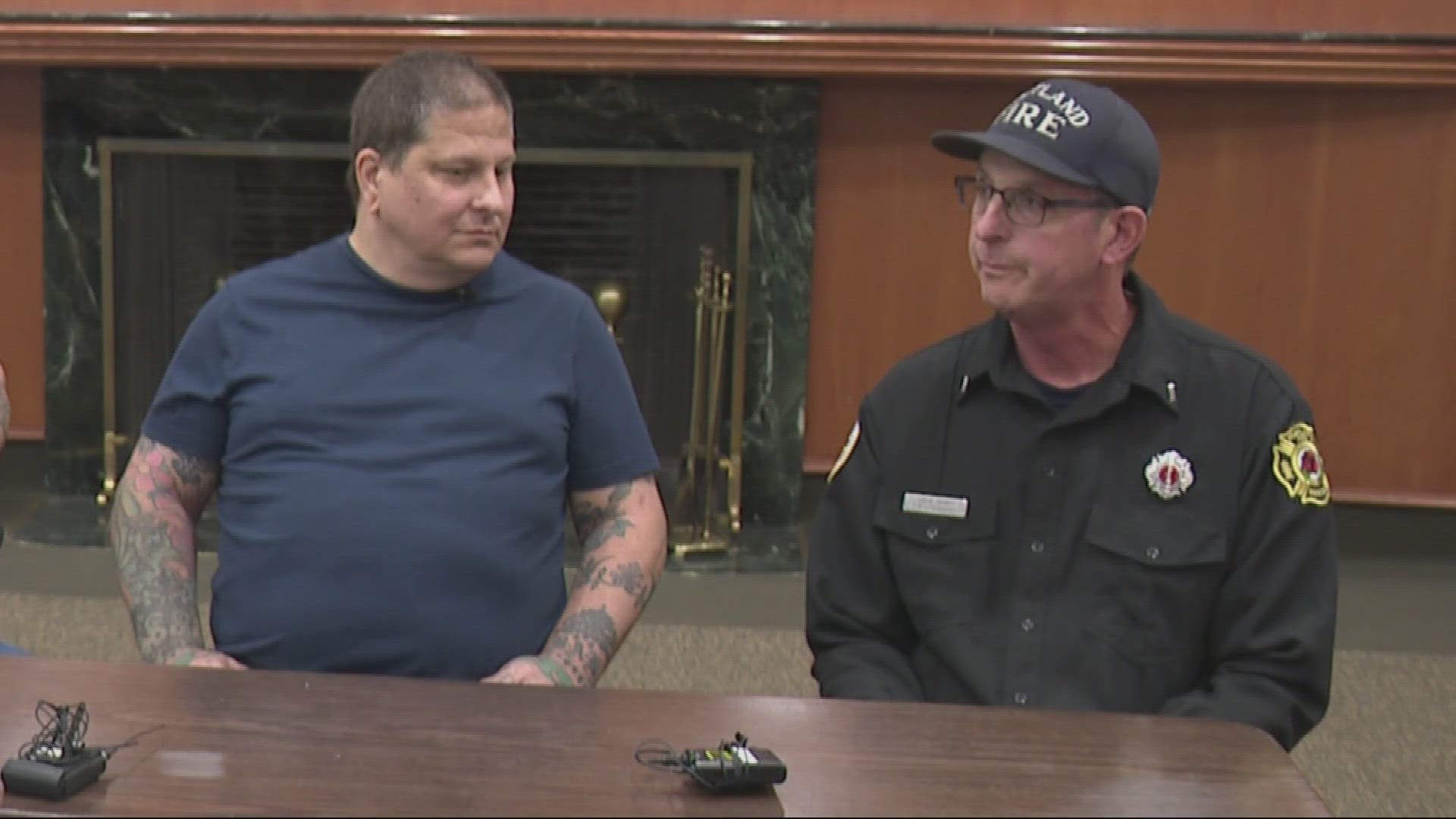PORTLAND, Ore. — The crew on Portland Fire & Rescue's Engine 9 pulled up at Providence Portland Medical Center on Wednesday to meet a man whose life they saved nine days ago.
Brett Kovar had a massive stroke at his home several blocks from the hospital.
“There was no buildup or anything — I looked down and dropped my coffee cup, it split in half and then I just turned and fell backwards,” recalled Kovar.
Fortunately, Brett’s twin brother was there and knew that the family history includes a risk of stroke.
“He tried to get up and crawl to the back porch and I thought, 'I better call an ambulance,'” said Scott Kovar.
But as KGW has been reporting, getting an ambulance right away these days in Portland is not always possible. There are not enough AMR crews, and they're working in an overloaded system.
In fact, thanks to a resource mapping app now used by first responders, this Portland Fire crew knew going in that they didn't have an ambulance available. Firefighter/EMT Brian Faris is pretty handy with the Intterra app.


“For this call it kind of gave us a heads-up that we're gonna be waiting quite a while, and with our proximity to Providence we were able to make a quick decision to load him up and go,” said Faris.
“And to his credit, he's the one who said, 'Hey this might be a good time to consider transporting in the fire engine,' and we all kind of looked at each other and said, 'Yeah, let's do it,'” added Lt. Steve Sparks.
The ride to the ER inside this engine made for a cramped three minutes, tops. It can't work in every situation, but it did here. And at the hospital, Brett Kovar got fast expert care from the Providence emergency room and neurology team. In fact, they set a new record for eliminating the blood clot on Brett’s brain — 53 minutes.
“Your outcome is fantastic, and I’d like to say it always goes that way but it can't always go that way — but this is what we strive for,” said Dr. Andrew Rontal, a neurologist at Providence Portland, who added that a stroke victim loses 2 million brain cells a minute, so fast care is critical.
Brett said that he's still a bit foggy, and occasional stutters on his words, but he's been home for a most of a week, on his feet, gardening and walking the dog. And he's thankful he’s alive and recovering.
“What it all comes down to, no matter where we're from, is that all these guys — nurses, cops — are just absolutely important. I mean, just, this is obvious, these guys literally saved my life,” said Kovar.
And for these first responders, the gathering at the medical center was a rare chance to see the important results of their work.
“I've been doing this for 27 years and it's the second time … It's cool, very cool, it kind of brings it all together,” said Lt. Sparks.
Nobody at the event was knocking the AMR ambulance crews that are working hard in a very tough job, but they say there are just not enough of them and there are other factors too, like overloaded hospital ERs that get backed up and slow ambulance availability.
And while its rare for fire crews to run a patient themselves, they told KGW it is happening more lately in Portland.
The medical professionals also stress that it's important for all of us to have stroke symptom awareness, so experts say think “FAST”: face, arms, speech and time. Most often you'll see a sudden onset of changes in the face, use of arms or speech, and then time is of the essence for treatment. Thankfully, for Brett Kovar it's working out.

